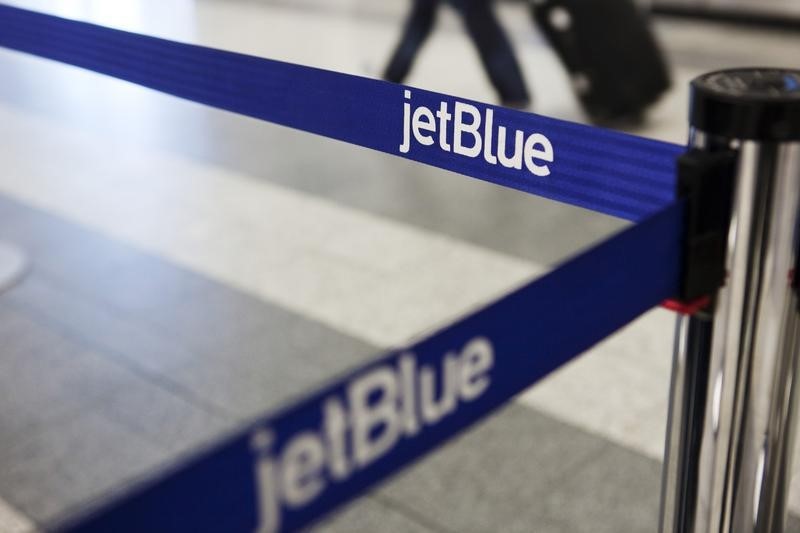This post was originally published on this site

WASHINGTON (Reuters) -The Federal Aviation Administration (FAA) said on Friday it would partially approve a request by JetBlue Airways (NASDAQ:JBLU) to waive minimum flight requirements at New York-area airports John F. Kennedy International and Newark Liberty International.
The decision allows JetBlue to hold on to valuable flight rights at some of the most congested U.S. airports. Airlines can lose their slots or runway timings at congested airports if they do not use them at least 80% of the time. JetBlue sought the waiver in July, saying its “workforce and flight operations are under extraordinary strain, leaving little margin for operational challenges caused by airport construction, (air traffic control) delays and weather,” the FAA said.
The relief, which runs retroactively through Oct. 29, will allow JetBlue to hold on to some slots, which are takeoff and landing authorizations. It does not extend into early 2023 as JetBlue had sought.
JetBlue also cited a “a severe, industry-wide shortage of aircraft parts,” the FAA said, adding the airline “asserts that they have been unable to meet the minimum slot usage requirement because of an ongoing global aircraft parts shortage that has caused aircraft to remain in maintenance and out of service for longer than normal.”
JetBlue told the FAA it significantly increased the number of spare aircraft starting in August, but with additional aircraft out of service the “ability to cover slotted flying is even more challenged.”
JetBlue did not immediately respond to a request for comment.
The FAA said “slots are scarce public resources whose use the holder must prioritize or surrender to another
operator who will maximize their benefit for the traveling and shipping public.”
The FAA previously approved other waiver requests.
In August, the FAA said Delta Air Lines Inc (NYSE:DAL) could temporarily cut some flights at New York’s LaGuardia and JFK airports and Ronald Reagan Washington National Airport.
Delta had asked the FAA to waive minimum slot requirements because of issues including New York airport construction, significant crew sick time, severe weather and air traffic control delays and cancellations.
In June, the FAA approved United Airlines’ plan to temporarily cut about 50 daily departures from its Newark hub to address congestion. The cuts represented 12% of United’s 425 daily flights at Newark.

